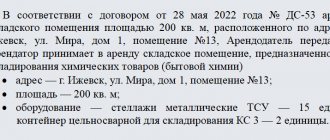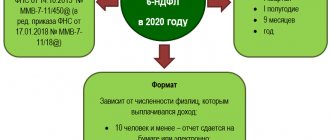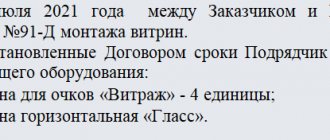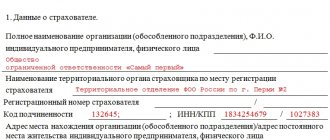Free transfer of property
"United Consulting Group" is ready to offer its services for calculating taxes and preparing tax returns for organizations, individual entrepreneurs and individuals. Contact our managers for advice!
The gratuitous transfer of property, as established by current legislation, is formalized by a gift agreement. In accordance with Article 572 of the Tax Code of the Russian Federation, under a gift agreement, one party (the donor) gratuitously transfers or undertakes to transfer to the other party (the donee) an item of ownership or a property right (claim) to himself or to a third party, or releases or undertakes to release it from a property obligation to yourself or to a third party.
Let us consider the procedure for taxation of transactions involving the gratuitous transfer of property from two sides: in the accounting of the recipient of the property (property rights) and the transferor (in relationships between legal entities, individuals, as well as between an employer and an employee).
Income tax
In accordance with clause 2 of Article 248 of the Tax Code of the Russian Federation, property (work, services) or property rights are considered received free of charge if the receipt of this property (work, services) or property rights is not associated with the occurrence of an obligation on the recipient to transfer the property (property rights) to the transferor person (perform work for the transferor, provide services to the transferor).
When an organization receives property free of charge, in tax accounting the value of the property received free of charge is classified as non-operating income. According to clause 8 of Article 250 of the Tax Code of the Russian Federation, the amount of income is determined based on the market value of the received property, which cannot be lower than its residual value according to the tax accounting data of the transferring party. In accordance with paragraph 1, paragraph 4, Article 271 of the Tax Code of the Russian Federation, on the date the parties sign the act of gratuitous acceptance and transfer of property, the receiving party must increase its taxable profit by the amount of income.
However, Article 251 of the Tax Code of the Russian Federation establishes exceptions for cases when income in the form of property received free of charge is not taken into account when determining the tax base.
1) According to paragraph 6 of paragraph 1 of Article 251 of the Tax Code of the Russian Federation, income in the form of funds and other property that is received in the form of gratuitous assistance (assistance) in the manner established by the Federal Law “On gratuitous assistance (assistance) of the Russian Federation and amendments” is not taken into account and additions to certain legislative acts of the Russian Federation on taxes and on the establishment of benefits for payments to state extra-budgetary funds in connection with the implementation of gratuitous assistance (assistance) of the Russian Federation.”
2) In accordance with paragraph 7 of paragraph 1 of Article 251 of the Tax Code of the Russian Federation, income in the form of fixed assets and intangible assets received free of charge in accordance with international treaties of the Russian Federation, as well as in accordance with the legislation of the Russian Federation by nuclear power plants to improve their safety, is not taken into account, used for production purposes.
3) Based on clause 11, clause 1 of Article 251 of the Tax Code of the Russian Federation, if property is transferred by a founder who has more than 50% of the authorized capital of the receiving party, or by an established organization owned by the receiving party by more than 50%, then the received property is not recognized as income. In this case, the facility must be in operation for at least one year and not transferred to third parties during this time, with the exception of funds (letters of the Ministry of Finance of Russia dated March 13, 2007 N 03-11-04/2/63, dated April 19, 2006 N 03 -03-04/1/360).
4) According to paragraph 22, paragraph 1, Article 251 of the Tax Code of the Russian Federation, income in the form of property received free of charge by state and municipal educational institutions, as well as non-state educational institutions that have licenses to conduct educational activities, to conduct statutory activities.
According to clause 1 of Article 249 of the Tax Code of the Russian Federation, for profit tax purposes, income is recognized as proceeds from the sale of goods, work, services, and property rights. In case of a gratuitous transfer, the transferring party, under the terms of the agreement, initially does not claim the proceeds under the gift agreement. Thus, the transferring party only incurs expenses for the gratuitous transfer.
According to clause 16 of Article 270 of the Tax Code of the Russian Federation, expenses for the gratuitous transfer of property do not reduce taxable profit. In accordance with paragraph 4 of PBU 18/02, these expenses must be recognized as a permanent difference and a permanent tax liability must be accrued from them.
In both cases, when receiving or transferring fixed assets under contracts for free use, they are excluded from depreciable property in accordance with clause 3.Article 256 of the Tax Code of the Russian Federation.
Value added tax
When calculating the taxable base for VAT, it is necessary to keep in mind that, according to clause 1 of Article 146 of the Tax Code of the Russian Federation, the transfer of ownership of goods free of charge is recognized as a sale for the purpose of calculating VAT.
According to clause 2 of Article 154 of the Tax Code of the Russian Federation, when selling fixed assets free of charge, the tax base is determined as their cost, calculated on the basis of prices determined in a manner similar to that provided for in Article 40 of the Tax Code of the Russian Federation, without including VAT. The amount of accrued VAT is reflected in accounting under the credit of account 68 in correspondence with account 91, subaccount 2 “Other expenses”.
We note that the Tax Code, Articles 146 and 149, outlines restrictions on the recognition of gratuitous transfers as an object of taxation.
In accordance with paragraph 2 of Article 146 of the Tax Code of the Russian Federation, in particular:
- transfer, free of charge, of residential buildings, kindergartens, clubs, sanatoriums and other social, cultural, housing and communal facilities, as well as roads, electrical networks, substations, gas networks, water intake structures and other similar facilities to state authorities and local governments (or by decision of the specified bodies, specialized organizations that use or operate the specified objects for their intended purpose) in accordance with paragraph 2 of paragraph 2 of Article 146 of the Tax Code of the Russian Federation;
- transfer on a free basis of fixed assets to state authorities and management bodies and local self-government bodies, as well as state and municipal institutions, state and municipal unitary enterprises (clause 5, clause 2, article 146 of the Tax Code of the Russian Federation).
In accordance with paragraph 12, paragraph 3, Article 149 of the Tax Code of the Russian Federation, the gratuitous transfer of goods within the framework of charitable activities is exempt from taxation on the basis of the Federal Law of August 11, 1995 N 135-FZ “On Charitable Activities and Charitable Organizations.”
According to Article 1 of Law N 135-FZ, charitable activities are understood as voluntary activities of citizens and legal entities in the disinterested (free of charge or on preferential terms) transfer of property to citizens or legal entities, performance of work, provision of services.
The goals of charitable activities are spelled out in detail in Article 2 of Law No. 135-FZ, and Article 4 of this Law provides that citizens and legal entities have the right to freely carry out charitable activities on the basis of voluntariness and freedom to choose its goals.
In accordance with Article 5 of Law N 135-FZ, participants in charitable activities are understood to be citizens and legal entities engaged in charitable activities, including by supporting an existing or creating a new charitable organization, as well as citizens and legal entities in whose interests charitable activities are carried out: philanthropists, volunteers, beneficiaries.
At the same time, paragraph 2 of Article 2 of Law N 135-FZ establishes that sending money and other material resources, providing assistance in other forms to commercial organizations, as well as supporting political parties, movements, groups and campaigns are not charitable activities.
If the recipient in an agreement on the provision of charitable assistance is an organization that is a commercial organization, the gratuitous transfer of property is subject to VAT on a general basis. This conclusion is contained in the letter of the Ministry of Taxes of the Russian Federation dated May 13, 2004 N 03-1-08/1191/ [email protected] “Code of letters on the application of the current legislation on VAT for the second half of 2003 - the first quarter of 2004.”
Thus, the gratuitous transfer of property may become the subject of a gift agreement and is subject to value added tax, except in cases established by law.
Personal income tax
Chapter 23 of the Tax Code of the Russian Federation defines, in particular, issues related to the taxation of personal income tax on income in cash and in kind received from individuals as a gift of real estate, vehicles, shares, shares, shares.
Donees are divided into two categories:
1) those who are in family and (or) close family relationships with the donor; 2) those who are not in a family relationship with the donor and (or) a close relationship.
If the question concerns the taxation of personal income tax on property received as a gift between family members and (or) close relatives, then according to clause 18_1 of Article 217 of the Tax Code of the Russian Federation, income received as a gift is exempt from taxation if the donor and donee are members family and (or) close relatives in accordance with the Family Code of the Russian Federation (spouses, parents and children, including adoptive parents and adopted children, grandfather, grandmother and grandchildren, full and half (having a common father or mother) brothers and sisters).
An individual who has received a gift of real estate, a vehicle, shares, shares, shares and is not a family member or close relative of the donor, on the basis of paragraph 4, paragraph 1 and paragraph 4 of Article 228 of the Tax Code of the Russian Federation, must independently calculate the amount of personal income tax, payable at the taxpayer’s place of residence no later than July 15 of the year following the expired tax period. Moreover, in the tax return you must indicate all income received by an individual during the year (clause 4 of Article 229 of the Tax Code of the Russian Federation).
When receiving property free of charge, also from legal entities, you should be guided by paragraph 7 of paragraph 1 of Article 228 of the Tax Code of the Russian Federation, according to which the calculation and payment of tax is carried out by individuals who receive income in cash and in kind by way of gift, with the exception of the cases provided for in paragraph 18_1 Article 217 of the Tax Code of the Russian Federation. Income received by a taxpayer in kind, in particular, includes goods received by the taxpayer, work performed in the interests of the taxpayer, services rendered in the interests of the taxpayer free of charge or with partial payment (clause 2 of clause 2 of Article 211 of the Tax Code of the Russian Federation).
The tax return must be submitted to the tax authority no later than April 30 of the year following the expired tax period (clause 1 of Article 229 of the Tax Code of the Russian Federation). Even if an individual is exempt from paying personal income tax on the entire amount of donated property, he is required to file an income tax return. Otherwise, he faces a fine provided for in Article 119 of the Tax Code of the Russian Federation, in the amount of 5% of the amount of tax payable (surcharge) on the basis of this declaration.
Contents and sample
The contract must indicate:
- The name of the document with a serial number (individual).
- Place and date of conclusion.
- Names of the “Contractor” and “Customer”.
- Indication of the subject of the contract (clear identification of services). One document can indicate several names of homogeneous services.
- Rights and obligations of the parties.
- Responsibility of the parties.
- A clause that provides methods for resolving disputes.
- Final provisions.
Form.
Sample filling.
In addition to these points, you can include general provisions under the federal legislation of the Russian Federation, as well as force majeure circumstances. At the very end of the document there must be details and signatures with transcripts of authorized persons (representatives of the parties).
Repaying an employee loan
Our company provides assistance in preparing 3-NDFL tax returns on personal income. Our managers will be happy to help you resolve your issues!
Repayment of obligations under a loan agreement can be carried out both in cash and non-cash forms. As a rule, repayment of an intra-company loan based on an employee’s application is carried out through deductions from his salary.
Let's consider the procedure for taxation of transactions related to the repayment of a loan issued to an employee of the organization.
Income tax
The amount of the loan issued to the employee and the amount received from him to repay such borrowing are not taken into account when determining income and expenses for profit tax purposes (clause 10, clause 1, article 251, clause 12, article 270 of the Tax Code of the Russian Federation).
If the employee was issued an interest-bearing loan, then for the purpose of calculating income tax, interest on the loans provided is classified as non-operating income (clause 6 of Article 250 of the Tax Code of the Russian Federation). Their accounting depends on the method of recognition of income and expenses for calculating the taxable base.
Value added tax
Operations for the provision of loans in cash and the provision of financial services for the provision of loans in cash are not subject to VAT (clause 15, clause 3, article 149 of the Tax Code of the Russian Federation). At the same time, when an employer issues an interest-bearing loan to an employee, the enterprise needs to keep separate VAT records on the basis of clause 4 of Article 149 and clause 4 of Article 170 of the Tax Code of the Russian Federation.
Personal income tax
Loans for employees are issued by organizations, as a rule, at reduced interest rates. Preferential use of borrowed funds is considered in this case as the borrower’s income in the form of material benefits received from savings on interest in accordance with paragraph 1 of paragraph 1 of Article 212 of the Tax Code of the Russian Federation. Thus, the borrower becomes a personal income tax payer on this basis.
The tax base for calculating personal income tax is defined as the excess of the amount of interest calculated on the basis of three-quarters of the current refinancing rate established by the Central Bank of the Russian Federation on the date of receipt of the loan over the amount of interest under the terms of the agreement. In accordance with paragraph 2 of Article 224 of the Tax Code of the Russian Federation, this income is subject to personal income tax at a rate of 35%.
Based on paragraph 3 of paragraph 1 of Article 223 of the Tax Code of the Russian Federation, the date of receipt of income is the date of payment by the taxpayer of interest on borrowed (credit) funds received. According to the Ministry of Finance of Russia, when issuing an interest-free loan, the actual date of receipt of income in the form of material benefits should be considered the corresponding dates of repayment of borrowed funds (letters dated 04/23/2008 N 03-04-06-01/103, dated 04/11/2008 N 03-04- 06-01/83, dated 04.02.2008 N 03-04-07-01/21).
We note that from January 1, 2008, the date of actual receipt of income is recognized as the day the employee paid interest for the use of borrowed funds (clause 3, clause 1, Article 223 of the Tax Code of the Russian Federation), and material benefits received from savings on interest for use are excluded from the list of income borrowed (credit) funds for new construction or acquisition on the territory of the Russian Federation of a residential building, apartment, room or share(s) in them if the taxpayer (borrower) has the right to receive a property tax deduction in accordance with paragraph 2 of paragraph 1 Article 220 of the Tax Code of the Russian Federation.
According to the clarifications of the Ministry of Finance in letter dated 04/16/2008 N 03-04-06-01/93, before the taxpayer confirms the right to receive a property tax deduction, income in the form of material benefits received from savings on interest for the use of borrowed (credit) funds is taxed according to rate 35%. Subsequently, after confirmation of this right in the manner prescribed by clause 3 of Article 220 of the Tax Code of the Russian Federation, the previously paid tax amount is recalculated. In a letter dated April 14, 2008 N 03-04-06-01/85, the Ministry of Finance of Russia indicated that when the taxpayer confirms the right to a property tax deduction, income in the form of material benefits received from savings on interest for the use of borrowed (credit) funds is exempt from taxation in full, including when the amount of the loan received exceeds the maximum amount of property tax deduction (excluding interest) provided for in paragraph 2 of paragraph 1 of Article 220 of the Tax Code of the Russian Federation.
To exclude material benefits from an employee’s taxable income, the following documents are required:
- loan agreement, the intended purpose of which is new construction or purchase of housing;
- notification confirming the taxpayer's right to a tax deduction issued by the tax authority
Since the beginning of 2008, the responsibility for determining the tax base when an individual receives income in the form of material benefits from savings on interest, calculation, withholding and transfer of tax has been assigned to the tax agent (clause 2 of Article 212 of the Tax Code of the Russian Federation). The lending company must enter this income into the tax card for accounting income and personal income tax in Form 1-NDFL and reflect it in the individual’s income certificate in Form 2-NDFL.







